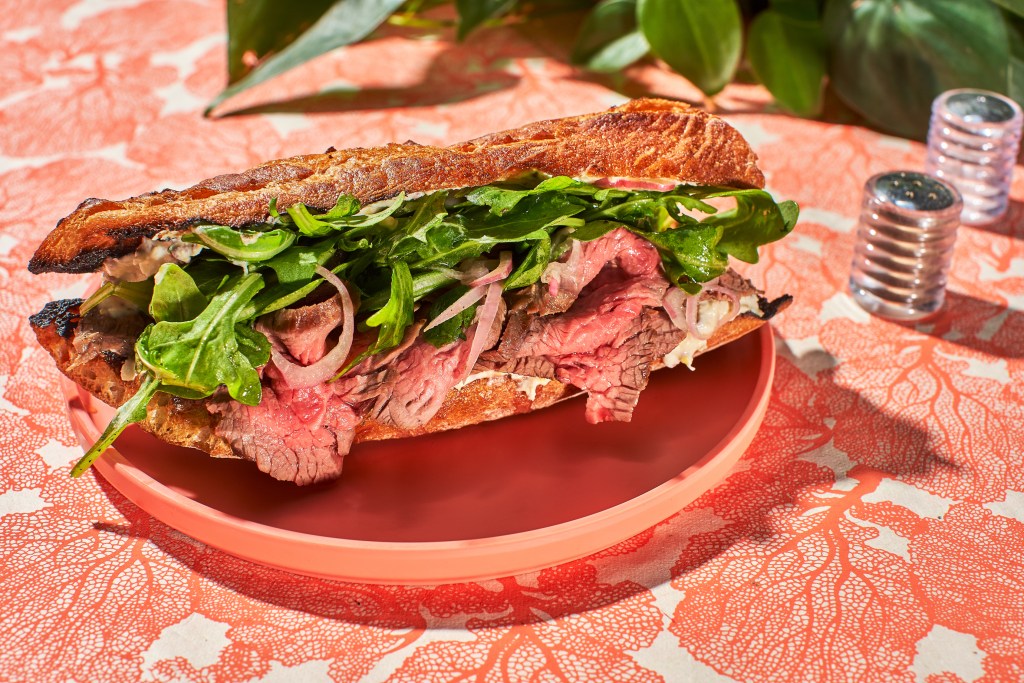Seal pup via
Seal hunting gets a bad rap. The phrase probably gives you a visual of agro dudes cracking the skulls of helpless seals with giant wooden clubs, and everyone from Morrissey to American celebrity chefs is pissed off that it’s still a tradition in many parts of Canada, including Newfoundland and Labrador. The EU has banned seal meat from their markets, and China won’t touch the stuff after a trade agreement that was signed in 2011. Despite this, seals are still hunted for the same reasons they’ve always been—their soft, cuddly, pelts and uniquely flavored meat—and last week, the Canadian, Newfoundland, and Labrador governments announced that they are investing almost $500,000 into a pilot project to place seal meat into specialty grocery stores.
Videos by VICE
Hunting styles have changed since the bad old days, and though things are still bloody out on the icebergs—in the best case scenario, a seal is killed by a shot to the head followed by a coup de grâce with a hakapik, a 12-ounce metal pick that has a hammer on one end and a sickle on the other—the Canadian government says current hunting practices are as humane as they can be. Additionally, Canada has so many seals that they’re threatening coastal fish populations; killing them in many situations is actually doing the ecosystem a favor. Amid all this controversy, Canadian restaurants are still serving seal meat. I spoke with Todd Perrin, the chef at the Mallard Cottage, one of the places where you can get seal when its in season, to get his perspective on the international shitshow of opinions surrounding the culture of this fatty meat, and learn why he’s so determined to keep it on his menu.
VICE: What do you think about the American chefs who signed the petition to boycott Canadian seafood to protest seal hunting?
Todd Perrin: The idea of the baby whitecoat getting bashed over the head by the rough Newfoundlander—that’s been outlawed for years. I think that those chefs were sold a line of propaganda by anti-sealing groups that are using inaccurate, dated observations.
Do you think that this petition will affect the seal hunt?
Can they run their operations in the United States without Canadian seafood? Yes. Signing a petition against seal products is not going to do much, but if you boycott the Canadian seafood industry as a whole, the petition will turn the big fish on the little fish, so to speak.
How are seals hunted today?
Seals are shot with high-powered rifles [and] finished off in a humane way with a hakapik. The pelts, the fat, and all of the meat is used a la offal style. The government regulates the hunt, but that’s not to say that everything is always perfect. The seal hunt is no worse than any other animal hunt.
Why do you think that there is such an international focus on seal hunting right now?
The European Union reinforcing their ban on seal products has brought a lot of attention to it again. I think it’s also because of the fundraising value that it has for animal-rights lobbyists. Picture a cute, cuddly, baby whitecoat seal. People identify with it—something that chickens, cows, and moose don’t have. There is no way that some housewife in New York City is going to send you $50 if you mail her a postcard with a picture of a chicken on it.
Do you serve it at your restaurant?
Yes. We will have it on our menu when the seal hunt begins in springtime. We like to braise the flippers and make a stew from them, or serve pulled seal meat, which has a very similar texture to pulled pork. We also cook the loins like lamb, make seal carpaccio, smoked seal meat, fresh sausages, terrines, and even seal oil ice cream. That didn’t turn out very well.
I’ve eaten seal carpaccio. It tasted a lot like liver, with a touch of saltwater.
It has a bad rap. Other game meats benefit from aging, but the seal meat must be really fresh. Because of the high fat and oil content, you should use it right away because it degrades very quickly.
Have you ever hunted seal?
I haven’t, but I’m planning on going this year. There are roughly 9 or 10 million seals off the coast of Newfoundland. The seal population is upsetting the balance of the fish population, which is in grave danger. We want to keep that population in check. Seals are not endangered, and they provide a quality product, so what’s the big deal? If you want to protest something in the food industry, you should go protest the treatment of migrant workers in the meat packing industry in the US, monoculture and factory farming, feedlots, or GMOs. The list goes on and on.
Read more from Ivy Knight at Swallowdaily.com.



